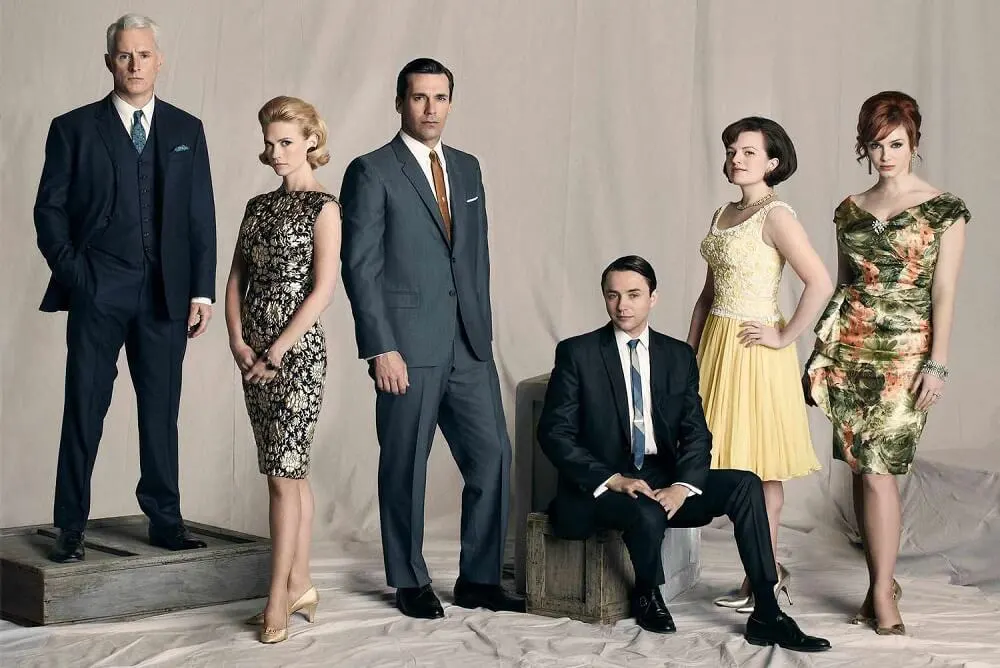From Mad Men to The Sopranos: A Look Back at TV’s Golden Age of Drama
TV’s Golden Age
The late 1990s through the 2000s marked what is widely considered television’s “Golden Age.” Groundbreaking dramatic series like Mad Men, The Sopranos, The Wire, and Breaking Bad redefined what was possible on the small screen and attracted large, dedicated audiences.
Mad Men set the stage for TV’s new era of prestige drama when it debuted in 2007. The series, which was set in 1960s New York advertising agencies, brought viewers into a period of social and cultural change through the eyes of enigmatic ad man Don Draper.

Content
With its stylish mid-century production design and exploration of themes like gender roles, consumerism, and the American dream, Mad Men set a new standard for historical dramas on television. It popularized the idea of complex anti-heroes and showed that serialized storytelling could be just as rewarding as a standalone film. Mad Men was also a pioneer in attracting major film talent like Jon Hamm, Elisabeth Moss, and January Jones to work in television.
Perhaps the most influential show of TV’s Golden Age was HBO’s The Sopranos, which premiered in 1999. Centered around New Jersey mob boss Tony Soprano, The Sopranos was groundbreaking for bringing the psychological complexities of film noir into the television medium. It tackled difficult topics like organized crime, mental illness, and family dysfunction with a cinematic visual style.
The Sopranos demonstrated that TV shows did not need to wrap up storylines neatly at the end of an episode or a season. Its multi-season arcs and ambiguous finale redefined expectations for television storytelling. The Sopranos also proved that subscription cable channels could produce TV shows on the scale of blockbuster movies. Its massive popularity and critical acclaim legitimized dramatic television as a serious artistic medium.
Another landmark of TV’s Golden Age was David Simon’s The Wire, which aired on HBO from 2002 to 2008. Often cited as one of the greatest television shows of all time, The Wire took a unflinchingly realistic look at the urban politics, police work, drug scene, and daily lives within the city of Baltimore.
Through its intricate multi-season storylines and extensive ensemble cast, The Wire examined the societal institutions often overlooked or minimized on television with profound empathy and intelligence. It demonstrated television’s potential for sophisticated social commentary on par with great novels or films. The Wire also broke new ground by featuring a predominantly black cast and tackling issues like systemic racism and economic inequality head-on.
One of the biggest hits of TV’s Golden Age was AMC’s Breaking Bad. Premiering in 2008, the darkly comic crime drama chronicled high school teacher-turned-meth kingpin Walter White’s moral descent over five gripping seasons. Breaking Bad was praised for its taut writing, unpredictable plot twists, and stellar performances by Bryan Cranston and Aaron Paul.
The show proved that basic cable networks could produce dramas to rival premium channels like HBO. With its intricate character studies and escalating stakes, Breaking Bad also demonstrated television’s unique ability to immerse viewers in long-form storytelling over many years. The massive popularity of streaming also allowed Breaking Bad to reach an even wider audience and cement its reputation as one of the best TV shows ever made.

Conclusion
In conclusion, the groundbreaking dramas of TV’s Golden Age completely transformed expectations for television storytelling and production values. Shows like Mad Men, The Sopranos, The Wire, and Breaking Bad tackled complex themes, featured cinematic visuals, and told sprawling narratives over multiple seasons.
They proved television was a legitimate artistic medium that could attract top Hollywood talent in front of and behind the camera. These influential series pushed creative boundaries, attracted dedicated cult followings, and spawned countless imitators that are still being produced today. TV’s Golden Age truly was a high water mark when daring cable and streaming shows redefined dramatic television.
FAQs
What year is generally considered the start of TV’s Golden Age of drama?
The late 1990s through the 2000s is most commonly cited as television’s Golden Age, starting with groundbreaking shows like The Sopranos in 1999.
What channels/networks were most prominent during TV’s Golden Age?
Premium cable channels like HBO, Showtime, and AMC led the way by producing many of the most acclaimed and influential dramas of TV’s Golden Age, including The Sopranos, The Wire, Mad Men, and Breaking Bad. Their willingness to take creative risks and air edgier content helped redefine expectations for television storytelling.

Meet Andrew, the entertainment enthusiast. He’s your go-to for movie reviews, TV series insights, and the latest on Hollywood’s rising stars. Join him for a dose of pop culture magic.















